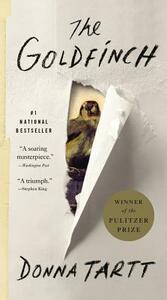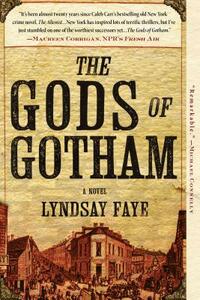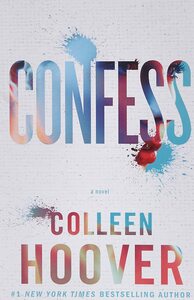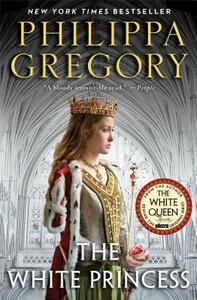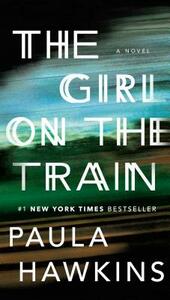Take a photo of a barcode or cover
whatsshwereading's Reviews (740)
I am not quite sure how many stars I want to give this book. There were parts I loved, parts I got bored, and parts which left me confused (that'd be about 50% of the book!) In the words of Salim Pheku, this book was an "all mix fruit juice".
It seems like Mitchell couldn't decide whether he wanted to write a dystopian thriller, a political satire, or a good 0ld fashioned gangster-style tale with lots hocus-pocus thrown in.So he did them all. Additionally, he seemed to be more interested in showing off his remarkable style of narrative. For most part his prose is lyrical - beautifully structured sentences and words that he made up to suit the fantastical bit of the story, which in turn left me lost. Not boasting, but I read China Mieville faster than this one and that's saying something!
Part I introduces us to 'the' six of the book and I loved the six, for the lack of a better word, shorts about these interlinked characters (Especially Crispin Hershey who is purported to be a caricatured version of the author himself) Plus there is a hint of the mysterious Esther Little whom we don't get to know until we reach Part II. Mitchell's characters turn out to be deliciously unpredictable except for Holly, the protagonist, who for some weird reason is decidedly bland.
Part II is where the book begins to make sense and at the same time confuses the hell out of you. There is a lot of talk about immortality- how a few are chosen and have to fight the bad ones who snatch it by feeding on the innocent. And the actual war. Phew! It read out more like a malfunction in a laboratory than a battle. I don't know about others but the Chapel of the Dusk and The Blind Cather seemed eerily similar to Mordor and Sauron!!
Boom-Pow, blood, crash. And the battle's won. You'd think there'd be a nice epilogue? But, no! The book plods on for a hundred pages more, fast-forwarding twenty years in the future where the world's pretty much dead. No electricity, most animals extinct, China's the superpower (oh yea) and we read how Holly (now in her mid seventies) makes do with a granddaughter, an adopted grandson and a dog. The conclusion didn't even warrant the extra hundred pages post battle. Plus, I wanted to know what happens to the dog, which obviously I don't. So, not a happy ending for me.
On the whole, I am still undecided on whether I like the book or not. Read it if you have the patience of a saint and lots of time on hand.
It seems like Mitchell couldn't decide whether he wanted to write a dystopian thriller, a political satire, or a good 0ld fashioned gangster-style tale with lots hocus-pocus thrown in.So he did them all. Additionally, he seemed to be more interested in showing off his remarkable style of narrative. For most part his prose is lyrical - beautifully structured sentences and words that he made up to suit the fantastical bit of the story, which in turn left me lost. Not boasting, but I read China Mieville faster than this one and that's saying something!
Part I introduces us to 'the' six of the book and I loved the six, for the lack of a better word, shorts about these interlinked characters (Especially Crispin Hershey who is purported to be a caricatured version of the author himself) Plus there is a hint of the mysterious Esther Little whom we don't get to know until we reach Part II. Mitchell's characters turn out to be deliciously unpredictable except for Holly, the protagonist, who for some weird reason is decidedly bland.
Part II is where the book begins to make sense and at the same time confuses the hell out of you. There is a lot of talk about immortality- how a few are chosen and have to fight the bad ones who snatch it by feeding on the innocent. And the actual war. Phew! It read out more like a malfunction in a laboratory than a battle. I don't know about others but the Chapel of the Dusk and The Blind Cather seemed eerily similar to Mordor and Sauron!!
Boom-Pow, blood, crash. And the battle's won. You'd think there'd be a nice epilogue? But, no! The book plods on for a hundred pages more, fast-forwarding twenty years in the future where the world's pretty much dead. No electricity, most animals extinct, China's the superpower (oh yea) and we read how Holly (now in her mid seventies) makes do with a granddaughter, an adopted grandson and a dog. The conclusion didn't even warrant the extra hundred pages post battle. Plus, I wanted to know what happens to the dog, which obviously I don't. So, not a happy ending for me.
On the whole, I am still undecided on whether I like the book or not. Read it if you have the patience of a saint and lots of time on hand.
Lovers of literature, rejoice! Donna Tartt's Goldfinch is here. Women Authors have finally arrived in the 21st Century literature! After the Bronte Sisters, Jane Austen, J K Rowling, Nora Roberts (yes, her!) we now have the likes of Gillian Flynn and Donna Tartt. How proud Virginia Woolf'd be.
In parts dramatic, philosophical, absurd even, The Goldfinch, is nonetheless a beautiful Bildungsroman (coming of age novel). Is it any wonder then that this book is being touted as "Dickensian"? It certainly has all the elements of a great Dickensian novel - a tragedy, an orphan, his tryst with crimes (petty and major)et al.
Theo Decker, a protagonist no doubt inspired by Oliver Twist and David Copperfield, is haunted (without realising how deeply) by that one event, when he is thirteen, which drastically changes his life. As we watch him cope and grow, we meet a myriad of people who inadvertently influence (positively and negatively) his life. Of these, my favourite is Boris, a Russian misfit, his salvation and least is Kitsey his fiance.
In crafting a tale about the aftermath of a tragedy, Ms.Tartt tells a serious story yet there is a strange dream-like quality to the narration, much like the fog Theo lives through. I believe that's what makes it such a compelling read. That doesn't mean it is without faults. There were chapters where I wished Ms. Tartt would simply get to the point or something would happen, but they unfold at a maddeningly slow pace, as if she were ruminating and at times, the narration simply meanders.
However, these are minor infractions in the bigger picture. This book, indubitably, is a must read for all those who enjoy classics.
P.S: Stay away from the book if you're not into big books, lazy+lengthy yet lyrical narrations.
In parts dramatic, philosophical, absurd even, The Goldfinch, is nonetheless a beautiful Bildungsroman (coming of age novel). Is it any wonder then that this book is being touted as "Dickensian"? It certainly has all the elements of a great Dickensian novel - a tragedy, an orphan, his tryst with crimes (petty and major)et al.
Theo Decker, a protagonist no doubt inspired by Oliver Twist and David Copperfield, is haunted (without realising how deeply) by that one event, when he is thirteen, which drastically changes his life. As we watch him cope and grow, we meet a myriad of people who inadvertently influence (positively and negatively) his life. Of these, my favourite is Boris, a Russian misfit, his salvation and least is Kitsey his fiance.
In crafting a tale about the aftermath of a tragedy, Ms.Tartt tells a serious story yet there is a strange dream-like quality to the narration, much like the fog Theo lives through. I believe that's what makes it such a compelling read. That doesn't mean it is without faults. There were chapters where I wished Ms. Tartt would simply get to the point or something would happen, but they unfold at a maddeningly slow pace, as if she were ruminating and at times, the narration simply meanders.
However, these are minor infractions in the bigger picture. This book, indubitably, is a must read for all those who enjoy classics.
P.S: Stay away from the book if you're not into big books, lazy+lengthy yet lyrical narrations.
The Good - Characters : Loved the Wilde brothers
Setting
The Bad: Language (Flash. After a point it was simply ridiculous)
Plot (incoherent at best)
And the Ugly : The ending
Bad and Ugly not withstanding, I'd be interested to know what Timothy gets up to in the next installment of what might probably be a series.
Setting
The Bad: Language (Flash. After a point it was simply ridiculous)
Plot (incoherent at best)
And the Ugly : The ending
Bad and Ugly not withstanding, I'd be interested to know what Timothy gets up to in the next installment of what might probably be a series.
This is without doubt the best CoHo book I've read. I loved almost everything about this book - the concept, Owen, Emory, Owen-Cat, and the confessions (one in particular, about a dog shocked me senseless). There's a lot happening in the background, but CoHo focuses on the feelings of her lead pair. And what they feel, you feel the same ten-fold. There is a sense of urgency, an ominous feeling that something terrible would happen, but fortunately for me it was a HEA (I loathe, yes, loathe unhappy endings!)While Auburn's character is nothing to write home about, I cannot complain as anyone in her situation would react the way she did.
That isn't to say the book is without its faults. Insta-love/lust/attraction call it what you will, is CoHo's trademark. And it. Is. Here. How anyone can be that powerfully attracted to a person in the first meet is beyond me. Then the usual villains trying to keep our lovebirds apart. But again, these are minor grouses. Overlook them and the book works.
Its a refreshing (yet at times heartbreaking) read. A romance novel without too much mush and steam.
A fine read for a friday night in or a lazy saturday morning.
That isn't to say the book is without its faults. Insta-love/lust/attraction call it what you will, is CoHo's trademark. And it. Is. Here. How anyone can be that powerfully attracted to a person in the first meet is beyond me. Then the usual villains trying to keep our lovebirds apart. But again, these are minor grouses. Overlook them and the book works.
Its a refreshing (yet at times heartbreaking) read. A romance novel without too much mush and steam.
A fine read for a friday night in or a lazy saturday morning.
At some point in the book, a forever insecure Henry VII tells Elizabeth - "When I think of the fortune that was spent on your education, Elizabeth, I am really amazed at how little you know."
That pretty much sums up Elizabeth of York's character. Elizabeth of York was a beautiful princess, instrumental in ending the Wars of Roses in England. A gentle Princess loved by all husband, Henry VII included.
In PG's historical fiction, Elizabeth is painted as a woman who was in love with another,and had to marry Henry for political reasons. You'd think the book would show a woman torn between loyalties - for her family, the Yorks and her husband's family, the Tudors, struggling to hold her own, trying to win the Tudors' trust. Yeah, no. She is stupid, so very stupid. That is when she is not sulking.
It helps little to read a book whose narrator seems to be clueless, asks pointless questions, and behaves like a five year old on a tantrum-spree. Henry VII, on the other hand, is a victim of female chauvinism (Of course, since he won the throne by right of conquest, his manner towards Elizabeth has to be most singularly cruel. Not to mention that he is utterly a Mamma's boy.) Perhaps PG intended for him to come across as a King driven to maniacal deeds because of deep-rooted insecurities. Again, no. He just appears to have bi-polar disorder. His "sainted" mother is a very stereotypical monster-in-law. I mean mum-in-law.
Having recently visited Westminster Abbey and seeing their (Henry & Elizabeth) graves, I was all the more interested in reading this book. Such a disappointment. Except for the initial and the concluding chapters, reading this book was about as interesting as reading a brochure at a doctor's.
That pretty much sums up Elizabeth of York's character. Elizabeth of York was a beautiful princess, instrumental in ending the Wars of Roses in England. A gentle Princess loved by all husband, Henry VII included.
In PG's historical fiction, Elizabeth is painted as a woman who was in love with another,and had to marry Henry for political reasons. You'd think the book would show a woman torn between loyalties - for her family, the Yorks and her husband's family, the Tudors, struggling to hold her own, trying to win the Tudors' trust. Yeah, no. She is stupid, so very stupid. That is when she is not sulking.
It helps little to read a book whose narrator seems to be clueless, asks pointless questions, and behaves like a five year old on a tantrum-spree. Henry VII, on the other hand, is a victim of female chauvinism (Of course, since he won the throne by right of conquest, his manner towards Elizabeth has to be most singularly cruel. Not to mention that he is utterly a Mamma's boy.) Perhaps PG intended for him to come across as a King driven to maniacal deeds because of deep-rooted insecurities. Again, no. He just appears to have bi-polar disorder. His "sainted" mother is a very stereotypical monster-in-law. I mean mum-in-law.
Having recently visited Westminster Abbey and seeing their (Henry & Elizabeth) graves, I was all the more interested in reading this book. Such a disappointment. Except for the initial and the concluding chapters, reading this book was about as interesting as reading a brochure at a doctor's.
Gone Girl it isn't, but it's definitely this year's book-you-have-to-read.



